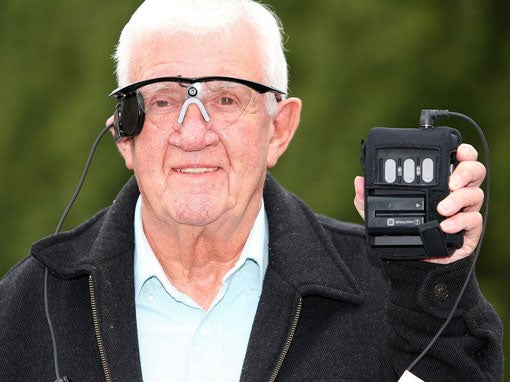Bionic eye helps man see in first transplant of its kind (even with his eyes shut)
Ray Flynn suffers from dry age-related macular degeneration and had no central vision before the operation

An 80-year-old man has become the world's first patient to receive a bionic eye implant.
The pioneering operation could change the lives of millions across the world who suffer from advanced dry age-related macular degeneration (AMD) – the most common cause of sight loss in the developed world.
Ray Flynn, from Audenshaw, lost his central vision as a result of AMD. It meant he had to give up gardening and going to watch Manchester United play football.
However, he has had his central vision restored after surgeons at Manchester Royal Eye Hospital performed a four-hour long operation, according to the BBC.
Flynn's bionic implant - the Argus II implant - can receive and convert images from a tiny video camera attached to his glasses.
According to the BBC, surgeon Paulo Stanga, who led the operation, said: “Mr Flynn’s progress is truly remarkable, he is seeing the outline of people and objects very effectively.”
“I think this could be the beginning of a new era for patients with sight loss,” said Professor Stanga.
The implant means Flynn can even see with his eyes shut.
To confirm that the visual information was coming from the camera and the implant, he kept his eyes closed during a test two weeks after the operation. Flynn said: “It was wonderful to be able to see the bars on the screen with my eyes closed.”
The implant - developed by Second Sight Medical Products from the US - and treatment costs around £150,000. But four more clinical trial patients will receive it for free.
Between 20 million and 25 million people worldwide suffer from AMD. Cathy Yelf, chief executive of the Macular Society, said it was “an exciting result”.
“Macular degeneration can be a devastating condition and very many people are now affected as we live longer."
Subscribe to Independent Premium to bookmark this article
Want to bookmark your favourite articles and stories to read or reference later? Start your Independent Premium subscription today.

Join our commenting forum
Join thought-provoking conversations, follow other Independent readers and see their replies